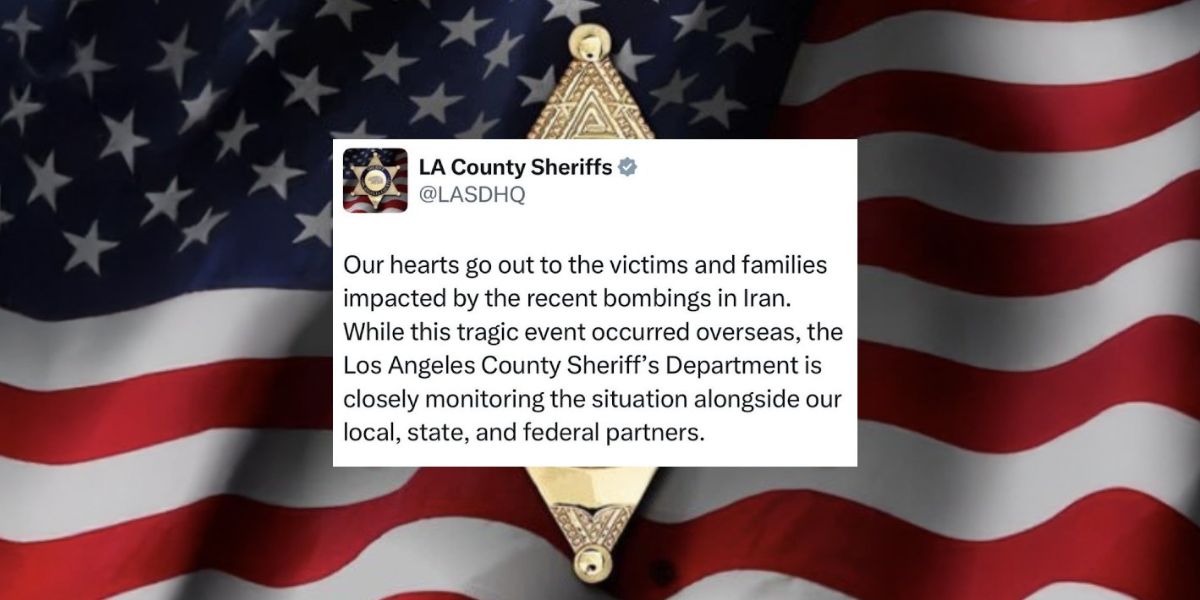Idaho police officers opened fire from behind a chain-link fence just seconds after exiting their patrol cars, seriously injuring a teenage kid — described by his family as nonverbal, autistic, and intellectually challenged — as he approached them with a knife, according to video from a witness.
Victor Perez, a 17-year-old with cerebral palsy, remained in serious condition in the hospital Tuesday after nine bullets were extracted from his body and his leg was amputated, according to his aunt, Ana Vazquez. Doctors were arranging tests to assess his brain function.
“We don’t know if he’s going to wake up,” she told me.
The shooting in Pocatello on Saturday upset the boy’s relatives and neighbors, as well as observers online, who questioned why the cops opened fire within about 12 seconds of entering their patrol cars, with no apparent attempt to de-escalate the situation or use less lethal weapons. According to eastidahonews.com, dozens of demonstrators gathered outside the police headquarters on Sunday.
There is no indication that the police were aware of the boy’s situation.
“The police barely spoke to anyone,” Vazquez explained. “They just said get back and they just, they shot to kill.”
Chief Roger Schei made a video message on the Pocatello Police Department’s Facebook page on Monday, stating that he wanted to “provide clarity, share the information we can at this stage, and address some misconceptions that have emerged.”
“We understand the concern and emotion surrounding the officer-involved shooting that occurred,” he said, adding, “We are also aware of the video circulating online, which shows only one angle. The full picture requires careful review of all facts and evidence.”
The circumstances that led to the shooting
Brad Andres, who captured the footage, owns an auto business nearby and told the AP that he observed a disturbance when he went outside to take a phone call at 5:20 Saturday. His 19-year-old son, Bridger, contacted 911 to report a domestic dispute in the backyard.
According to recordings of the 911 call obtained by the Pocatello Police Department, the 911 caller reported an apparently intoxicated man — the teen — holding a kitchen knife and chasing a man and a woman in the yard.
“He seems pretty drunk,” the caller told the operator. “He’s basically rushing at them with a knife and then falling over. “I think he just stabbed himself.”
The 911 caller reported that the people in the yard did not speak English.
“He looks like he fell on the ground and kind of passed out,” the caller said.
Perez was still on the ground when officers arrived at 5:25 p.m. Four officers dashed to the barrier, three brandishing handguns and one aiming what appeared to be a shotgun. They told him to drop the knife. Instead, the child jumped up and approached them, knife in hand. The police fired frequently.
Andres said the police “appeared to be like a death squad or a firing squad,” adding: “They never once asked, ‘What is the situation, how can we help?’ They ran up with their guns drawn, they triggered a mentally disabled person to react and when he reacted … they shot him.”
“This was really traumatic for me to watch, for me and my son to be a part of,” Andres said. “My son was the one that called the 911 with the hopes of helping the family deal with the situation that was going on. He had no idea that what was going to transpire.”
Schei declined to comment on the shooting because the East Idaho Critical Incident Task Force is conducting an investigation.
“In situations like this, officers must make decisions in seconds,” Schei said. “They assess threats not just to themselves but to those nearby. In this case, two individuals were within a few feet of an armed, noncompliant individual. The risk was immediate, and the situation rapidly evolving.”
The Pocatello Police Department did not immediately respond to emails requesting additional information Tuesday, including if the officers were carrying Tasers or other less lethal options.
According to the department’s policy manual, all uniformed officers who have been trained to use Tasers must carry them along with a baton or pepper spray.
Vazquez stated that Perez walked with a stumbling gait due to his impairments and was not inebriated. The boy’s 16-year-old sister yelled at the cops not to fire and told them he was “special,” according to Vazquez.
It was unclear whether the cops overheard such comments, which were not visible on the video.
After watching the video, Seth Stoughton, a former police officer who now teaches at the University of South Carolina Law School, expressed concern that the cops did not employ less lethal weapons or the fundamental practice of backing up to create distance between them and Perez.
“It does not appear to me that any officer is in immediate danger at the point where they begin shooting,” Mr. Stoughton said. “If he had made it over the fence and officers backed up and he continued to approach … then that could change.”
Vazquez stated that the family had never sought authorities for assistance with the youngster in the past, and that this was his first encounter with law enforcement.
Across the country, police agencies are boosting officer training on how to better identify and communicate with persons who may have developmental or intellectual problems, with many focusing on autism.
The trainings frequently focus on how people on the autistic spectrum react to external stimuli such as loudness or touch, which might be interpreted as refusing directives or resisting arrest by someone who is not on the spectrum.
Some organizations have begun offering stickers or designated license plates to people with autistic family members as a signal to authorities.
Pocatello is a city of slightly under 60,000 people located 165 miles (265 kilometers) north of Salt Lake City.



